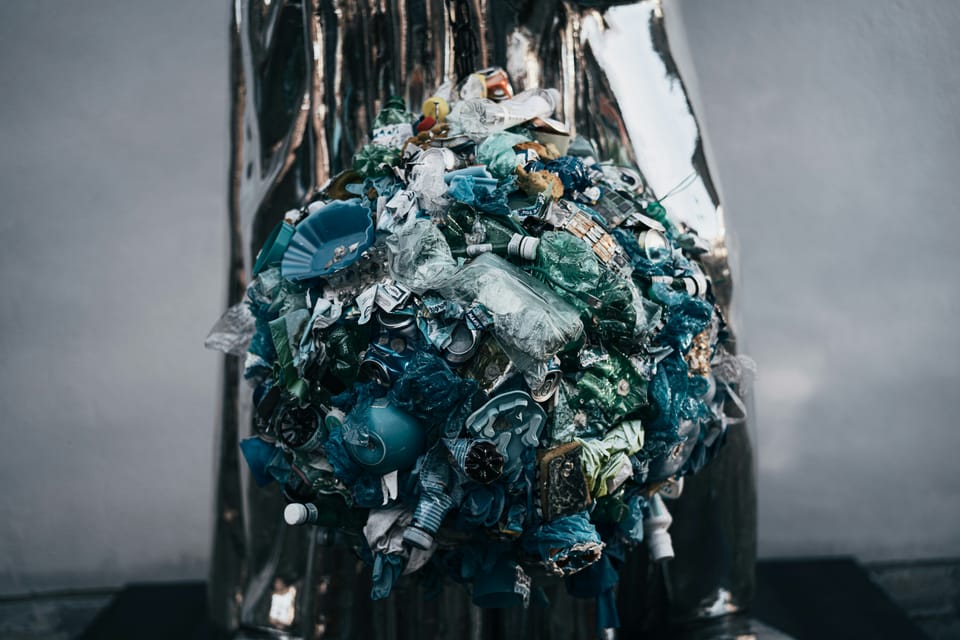Global Plastics Treaty talks to resume in 2025 after INC-5 ends in deadlock

Oil states and high-ambition countries couldn’t agree on the content of the Global Plastics Treaty at a meeting in South Korea last week, extending negotiations into 2025.
What was meant to be the final meeting to adopt a legally-binding treaty to end plastic pollution ended in disappointment in Busan on Sunday (December 1), after petrochemical interests blocked progress around production caps, chemicals of concern and financial mechanisms.
In the final hours of the negotiations, 100 countries including Fiji, Panama, Mexico, Rwanda and France called on the rest of the world to adopt binding global bans and phaseouts on harmful products and chemicals – covered in Articles 3 and 6 of the draft treaty.
‘The stakes are too high for a compromise’
“It is disappointing to see that a small number of members remain unsupportive of the measures necessary to drive real change. As co-chair of the high ambition coalition, Rwanda is clear: we are not here to settle for a treaty that lacks ambition. We want all of us to move forward together, but not at any cost. This treaty must work. It must deliver real results for people and the planet. The stakes are too high for a compromise that dilutes the potential of this treaty to address the root causes of plastic pollution,” said Rwanda’s lead negotiator Juliet Kabera, prompting a standing ovation by the majority of countries present at the negotiations.
But countries dependent on petrochemical exports, including Saudi Arabia, Iran and Kuwait argued that the treaty should only address plastic pollution, not production. Because the text must be approved unanimously by all members, this disagreement led to a deadlock as the Busan meeting came to an end.
Disappointment and hope
“It’s disheartening to walk away from INC-5 without a meaningful treaty in hand. Allowing a minority of actors to obstruct progress through the week, predictably resulted in breaking the promise made at the beginning of these talks. When Member states unanimously agreed to deliver a treaty the planet needs by 2024, the world believed them. Now, the price for inaction is far greater than wasted time, it puts both planetary and human health on the line and sets us up for a scenario where ambition could diminish over time,” commented Erin Simon, vice president and head of plastic waste and business, WWF.
Other sustainability leaders echoed her disappointment, but found hope in the unprecedented level of alignment between high-ambition countries, who would not accept a watered down treaty.
“It’s devastating news that the UN Plastics Treaty has failed us BUT take heart. I see this failure as a massive opportunity – a Treaty that doesn’t protect us fully, that doesn’t cap plastic production, that allows plastic production to treble in the next 20 years, that ignores the decades of expert health scientists ringing the alarm on toxic chemicals that are irrefutably harming us – especially the young – is not a Treaty worth having,” said Sian Sutherland Co-Founder of NGO A Plastic Planet.
Next steps on Global Plastics Treaty negotiations
Before closing the event in Busan, countries agreed on a ‘Chair’s Text’ that will serve as the starting point for the next round of negotiations – known as INC-5.2 – to be held at some point in 2025.
While the text doesn’t go as far as calling for a phase-out of problematic plastic products, it does mention binding measures around product design and a potential global list of chemicals and products of concern to eliminate, reflecting “improvement over previous drafts”, according to Simon.
Eirik Lindebjerg, Global Plastics Policy Lead at WWF, added: “While there are still many gaps, the new draft finally includes some essential elements that have been missing throughout these negotiations. The majority of countries have been calling for the measures that will have the biggest impact to address this crisis, including binding global bans and phase outs of harmful products and chemicals. And today, we finally have a draft that is starting to reflect that ambition.”







Member discussion